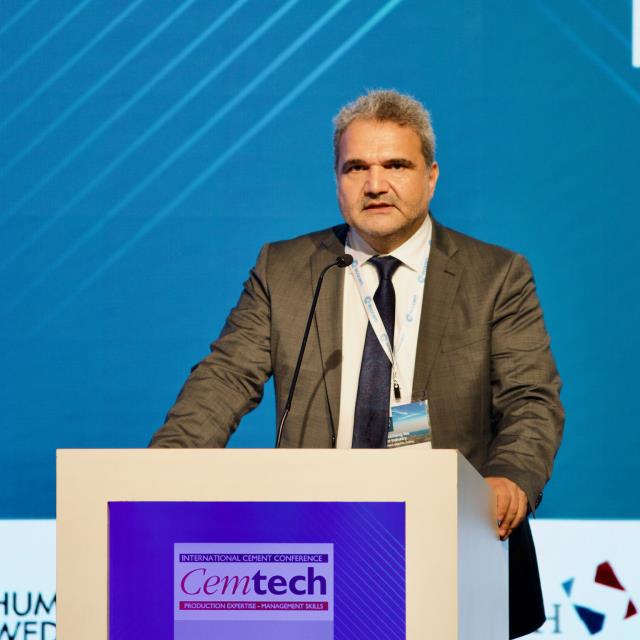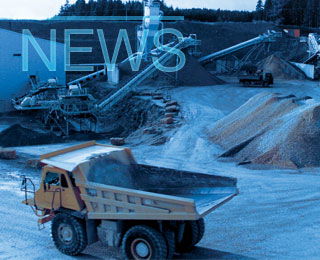Cemtech Europe 2023, the leading cement industry conference in Europe organised by International Cement Review, has opened in Istanbul, welcoming over 300 delegates from 40 countries.
Welcoming delegates to the conference, Volkan Bozay, CEO of the Turkish Cement Manufacturers Association, TÜRKÇİMENTO, highlighted the strengths of the domestic industry, which now includes 120Mta of clinker capacity and is ranked as the fifth-largest industry worldwide. Mr Bozay acknowledged the earthquake of south-central Turkey in February that has displaced 3m people. Reconstruction will require the building of 430,000 new homes. Mr Bozay highlighted the industry’s commitment to decarbonise as a priority, which will be driven by CBAM in Europe and the new domestic emissions trading system in Turkey.
Eyüp Kaan Moralı, Head of Carbon Pricing Department, Climate Change Directorate, Ministry of Environment, Urbanisation and Climate Change, Government of Turkey, set out the steps Turkey is taking to implement a carbon Emissions Trading System (ETS) in Turkey, which will be enshrined in the forthcoming Climate Change Law. Turkey’s ETS will be designed with close reference to the EU ETS and operate as a cap-and-trade system. It will commence with a pilot phase, in which cement producers as large emitters will be required to participate. The full allocation methodology for the trading system will be based on the grandfathering principal, but more details have not been disclosed.
Turkey’s two largest cement manufacturers, Oyak Cement and Limak Cement, both presented detailed decarbonisation roadmaps. Mr Galip Tekiner, Resource Recovery & Environment Director, explained that Oyak Cement aims to reduce its CO2 emissions by 22.8 per cent to 609kg/t by 2030 and reach net zero by 2050. Oyak is a pioneer in using calcined clay for clinker substitution. The company commissioned a calcined clay production line in Cote d’Ivoire in 2020, and will commission the first industrial scale flash calciner for calcined clay production in Cameroon in the last quarter of 2023. Oyak aims to reduce specific CO2 emissions per ton cement from 730kg to 400kg using calcined clay blended cements.
Erkam Kocakerim, CEO, Limak Cement, disclosed the company’s comprehensive roadmap to net zero by 2050. Limak emissions will be reduced to 547kg CO2/t cement by 2030 from 775kg CO2/t cement in 2022, and ultimately to net zero by 2050. Limak is investing in the deployment of green hydrogen for all its plants in Turkey, involving the construction of hydrogen electrolysers and logistics. Mr Kocakerim also announced the launch of Limak’s Triple Transition Project (TTP), which seeks to leverage digital technologies to deliver sustainable operations and accelerate the company’s green transition.
At Cemtech, Limak also launched 3DC-101, which is a unique and environmentally friendly mortar mixture suitable for printing on 3D printers, using CEMPLUS+ cement with a low-carbon footprint.
For a full review of this conference, subscribe to International Cement Review.

Volkan Bozay, CEO of TÜRKÇİMENTO, welcomed delegates to Cemtech Europe 2023 in Istanbul
